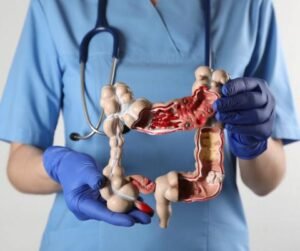
Colorectal Surgery: Advanced Solutions for Colon, Rectum, and Anus Disorders
Colorectal surgery treats conditions affecting the colon, rectum, and anus, offering both open and minimally invasive procedures. Common treatments include colectomy, polypectomy, ileostomy/colostomy, strictureplasty, anoplasty, and hemorrhoidectomy. Innovative techniques like the Compression Anastomotic Ring-locking Procedure (CARP) are increasingly preferred for improved outcomes.
Colorectal surgery is a critical intervention for managing complex gastrointestinal conditions. With advancements in surgical techniques, patients benefit from safer procedures, faster recoveries, and improved quality of life. Consult trusted colorectal surgeon Dr. Himanshu Yadav at Agra to explore the best treatment options for your condition.
Copyright 2022 © All Rights Reserved